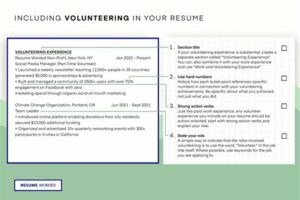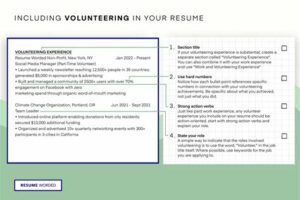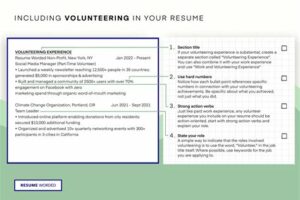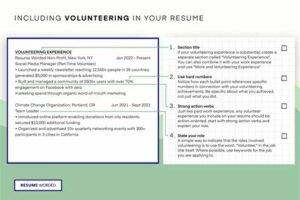Table of Contents
Learn how to run a successful volunteer program with our comprehensive guide. Discover strategies for recruiting, training, and retaining volunteers. Find tips on effective communication, goal-setting, and recognition to ensure the success of your program. Start making a positive impact in your community today!
Running a successful volunteer program can be a rewarding experience, not only for the participants but also for the organization itself. With the right strategies and a well-designed structure, a volunteer program has the potential to make a significant impact in the community it serves. Whether you are a non-profit organization, a school, or a business looking to give back, understanding the key elements of a successful volunteer program is essential. From recruiting and training volunteers to providing ongoing support and recognition, this article will guide you through the steps necessary to create an effective and impactful volunteer program.
Introduction
Running a successful volunteer program can be a rewarding and impactful experience for both the organization and the volunteers involved. However, it requires careful planning, effective management, and clear communication. This article will provide you with valuable insights and strategies to ensure your volunteer program runs smoothly and achieves its goals.
Identify your Objectives
Before launching a volunteer program, it is crucial to identify your objectives. Determine what you hope to achieve through the program and how it aligns with your organization’s mission. Whether it’s providing support to a specific cause or enhancing community engagement, clearly defining your goals will help guide your program’s structure and activities.
Recruit and Select Volunteers Carefully
The success of your volunteer program largely depends on the quality and commitment of your volunteers. Develop a comprehensive recruitment strategy that targets individuals who are passionate about your cause and possess the necessary skills and experience. Implement a selection process that includes interviews, reference checks, and background screenings to ensure you choose volunteers who are a good fit for your organization.
Create Clear Job Descriptions
Each volunteer role within your program should have a well-defined job description. Clearly outline the responsibilities, expectations, and time commitments for each position. This will help volunteers understand their role and ensure they can fulfill their duties effectively. Additionally, having clear job descriptions allows you to match volunteers with roles that align with their skills and interests.
Provide Comprehensive Training
To set your volunteers up for success, it is essential to provide comprehensive training. This can include orientation sessions, specific task training, and ongoing skill development opportunities. Ensure volunteers have a solid understanding of your organization’s mission, values, and protocols. Investing in their training will increase their confidence, competence, and overall satisfaction, leading to a more successful volunteer program.
Establish Effective Communication Channels
Effective communication is key to running a successful volunteer program. Establish clear channels of communication, such as email, phone, or a dedicated online platform, where volunteers can easily reach out for support or ask questions. Regularly update volunteers about program activities, upcoming events, and any changes or updates. Encourage open dialogue and provide opportunities for volunteers to share their feedback and suggestions.
Recognize and Appreciate Volunteers
Volunteers dedicate their time and effort to support your organization, so it is crucial to recognize and appreciate their contributions. Implement a volunteer recognition program that acknowledges their hard work and shows gratitude. This can include hosting appreciation events, presenting certificates or awards, or even simple gestures like handwritten thank-you notes. Recognizing volunteers not only boosts morale but also fosters long-term commitment and loyalty.
Ensure Volunteer Safety and Well-being
The safety and well-being of your volunteers should always be a top priority. Conduct a risk assessment of your volunteer activities and take necessary measures to mitigate any potential hazards. Provide volunteers with necessary safety equipment, clear guidelines, and emergency procedures. Regularly check in with volunteers to ensure they feel safe and supported while participating in your program.
Monitor and Evaluate Performance
To continuously improve your volunteer program, it is important to monitor and evaluate its performance. Set measurable goals and track your progress regularly. Collect feedback from volunteers through surveys or focus groups to identify areas of improvement. Use this information to make necessary adjustments, refine processes, and enhance the overall effectiveness of your program.
Cultivate Long-term Relationships
Building long-term relationships with your volunteers is essential for the sustainability of your program. Stay connected with volunteers even after their term ends by sending newsletters, organizing alumni events, or providing opportunities for continued involvement. By cultivating these relationships, you create a network of passionate advocates who can support your organization’s future initiatives and help recruit new volunteers.
Conclusion
A successful volunteer program requires strategic planning, effective management, and a genuine appreciation for your volunteers. By following the strategies outlined in this article, you can create an engaging and impactful program that attracts dedicated volunteers, achieves your objectives, and makes a positive difference in your community.
How To Run A Successful Volunteer Program
Planning and Goal Setting:
To run a successful volunteer program, it is crucial to start with careful planning and goal setting. Clearly define your program’s objectives, create a detailed timeline, and establish measurable outcomes to ensure that your program is organized and focused. By setting specific goals, you can guide your volunteers towards achieving meaningful impact and align their efforts with the overall mission of your organization.
Volunteer Recruitment and Screening:
Identifying and recruiting suitable volunteers is essential for a successful program. Develop comprehensive volunteer recruitment strategies, such as engaging with professional networks, community organizations, and social media platforms. Cast a wide net to attract diverse volunteers who bring different skills, experiences, and perspectives. Implement a thorough screening process to assess volunteers’ skills, interests, availability, and background checks to ensure the safety and suitability of volunteers. This will help create a cohesive team that is committed to your program’s goals.
Orientation and Training:
Providing thorough orientation and training sessions to volunteers is key to building a strong foundation for your program. Develop an organized orientation program that familiarizes volunteers with your organization’s mission, policies, and procedures. Set clear expectations and provide resources to help volunteers understand their roles and responsibilities. Additionally, offer specialized training to enhance their skills and empower them to excel in their roles. By investing in their development, you can ensure that volunteers are equipped to make a positive impact.
Effective Communication:
Establishing clear and efficient channels of communication is vital to running a successful volunteer program. Ensure regular communication with volunteers through emails, newsletters, and group meetings to keep them informed about upcoming events, changes, and updates. Provide a platform where volunteers can easily reach out with any questions or concerns. Additionally, providing a feedback mechanism where volunteers can share their ideas, concerns, and successes is crucial for maintaining a strong relationship. By fostering open and transparent communication, you can create a supportive and engaged volunteer community.
Volunteer Recognition and Appreciation:
Recognizing and appreciating volunteers’ hard work and dedication fosters a positive and supportive environment. Implement a volunteer recognition program that acknowledges volunteers’ achievements through certificates, awards, or special events. Regularly show appreciation by expressing gratitude, providing thank-you notes, or organizing appreciation events to make volunteers feel valued and motivated. By celebrating their contributions, you can enhance volunteer satisfaction and encourage long-term commitment.
Support and Supervision:
To ensure the success of your volunteer program, dedicate resources to provide support and supervision to volunteers. Assign supervisors or mentors who can guide and assist volunteers throughout their involvement. Regular check-ins, performance evaluations, and constructive feedback are essential for maintaining volunteer satisfaction and addressing any concerns or challenges. By offering ongoing support, you can foster a sense of belonging and provide volunteers with the necessary guidance to excel in their roles.
Evaluation and Continuous Improvement:
Monitoring and evaluating your volunteer program’s performance is crucial for identifying areas of improvement and maximizing impact. Regularly assess your program’s effectiveness, volunteer satisfaction, and outcome achievements. Utilize feedback from volunteers, stakeholders, and beneficiaries to adapt and enhance your program for better results. By continuously evaluating and improving your program, you can ensure its relevance and effectiveness in meeting the needs of your organization and the community you serve.
Sustainability and Growth:
To run a successful volunteer program, it is essential to ensure its long-term sustainability and growth. Develop strategies for volunteer retention and ongoing recruitment to maintain a strong and committed volunteer base. Provide opportunities for volunteers to take on leadership roles or participate in decision-making processes. Continuously seek opportunities for collaboration, partnerships, and funding to expand the program’s reach and impact. By investing in sustainability and growth, you can create a lasting and impactful volunteer program.In conclusion, running a successful volunteer program requires careful planning, effective recruitment and screening, thorough orientation and training, clear communication, recognition and appreciation, ongoing support and supervision, evaluation and continuous improvement, as well as sustainability and growth strategies. By implementing these key elements, organizations can create a thriving volunteer program that makes a meaningful difference in their communities.
A successful volunteer program is essential for any organization that relies on the help and support of volunteers. Running a volunteer program requires careful planning, organization, and management in order to achieve the desired outcomes. Here are some key points to consider when aiming to run a successful volunteer program:
1. Clearly define the program’s goals and objectives:
- Clearly communicate what the program aims to achieve and how the volunteers will contribute to those goals.
- Ensure that the objectives are realistic, measurable, and align with the organization’s mission.
2. Recruit and select volunteers effectively:
- Develop a recruitment strategy that targets individuals who possess the skills, experience, and passion needed to contribute to the program.
- Implement a thorough selection process that includes interviews, reference checks, and background screenings to ensure the suitability of potential volunteers.
3. Provide comprehensive training and orientation:
- Offer initial training sessions to familiarize volunteers with the organization’s mission, values, and specific program requirements.
- Provide ongoing training opportunities to enhance volunteers’ skills and knowledge related to their roles.
4. Establish clear expectations and guidelines:
- Clearly communicate the responsibilities, roles, and expectations of volunteers, ensuring they understand what is expected of them.
- Create a volunteer handbook or manual that outlines policies, procedures, and any code of conduct that must be followed.
5. Foster a positive and inclusive environment:
- Create a supportive and welcoming atmosphere that encourages volunteers to contribute their ideas, skills, and perspectives.
- Promote teamwork, collaboration, and mutual respect among volunteers and staff members.
6. Provide ongoing support and recognition:
- Regularly check in with volunteers to offer guidance, answer questions, and address any concerns they may have.
- Recognize and appreciate volunteers’ efforts through formal or informal means such as awards, certificates, or public acknowledgments.
7. Evaluate and improve the program:
- Regularly assess the effectiveness of the volunteer program by gathering feedback from volunteers, staff, and beneficiaries.
- Use the feedback to identify areas for improvement and make necessary adjustments to enhance the program’s impact and efficiency.
8. Maintain open communication channels:
- Establish regular communication channels to keep volunteers informed about program updates, upcoming events, and any changes in procedures.
- Encourage volunteers to provide feedback, ask questions, and share their ideas to continuously improve the program.
In conclusion, running a successful volunteer program requires careful planning, effective recruitment, thorough training, clear expectations, a positive environment, ongoing support, program evaluation, and open communication. By implementing these key points, organizations can create and maintain an impactful and rewarding volunteer program that benefits both the organization and the volunteers involved.
Thank you for visiting our blog and taking the time to learn about running a successful volunteer program. We hope that the information we have provided has been helpful and informative, and that you are now equipped with the knowledge and tools to make your volunteer program a resounding success.
Creating and managing a volunteer program can be a challenging task, but with careful planning and implementation, it can also be an incredibly rewarding experience. As you embark on this journey, it is important to keep in mind a few key principles that will help you build and maintain a successful program.
Firstly, it is crucial to clearly define the goals and objectives of your volunteer program. This will not only help you attract the right volunteers, but also enable you to align their efforts with your organization’s mission. By setting clear expectations and providing volunteers with a sense of purpose, you will be able to maximize their impact and create a more fulfilling experience for everyone involved.
Another important aspect to consider is effective communication. Regular and open communication with your volunteers is essential for keeping them engaged and motivated. This can be achieved through various channels such as email updates, newsletters, or even regular meetings. Remember to provide feedback and recognition for their hard work, as this will foster a sense of belonging and encourage them to continue making a difference.
Lastly, it is crucial to continuously evaluate and improve your volunteer program. Regularly assessing its effectiveness and seeking feedback from both volunteers and beneficiaries will help you identify areas for improvement and make necessary adjustments. By being open to change and willing to adapt, you can ensure that your program remains relevant and impactful in the long run.
In conclusion, running a successful volunteer program requires careful planning, effective communication, and a commitment to constant improvement. By following these principles, you can create a program that not only benefits your organization and the communities you serve, but also provides a meaningful and rewarding experience for your volunteers. We wish you the best of luck in your endeavors and hope that you find fulfillment in making a positive impact through volunteerism.
Thank you once again for visiting our blog, and we hope to see you again soon!
Video How To Run A Successful Volunteer Program
People also ask about how to run a successful volunteer program:
- How do I attract volunteers?
- Showcase the impact of your organization and the difference volunteers can make.
- Create engaging and inspiring volunteer recruitment materials.
- Promote your volunteer opportunities on social media and relevant community platforms.
- Partner with local businesses, schools, and organizations to reach a wider audience.
- How can I motivate my volunteers?
- Recognize and appreciate their efforts through regular verbal and written expressions of gratitude.
- Provide meaningful and fulfilling experiences that align with their interests and skills.
- Offer opportunities for personal and professional growth through training and workshops.
- Keep volunteers informed about the impact of their work and regularly update them on the progress of the organization.
- How can I effectively manage volunteers?
- Establish clear expectations and guidelines for volunteers from the beginning.
- Create a structured schedule or system for assigning tasks and tracking volunteer hours.
- Provide ongoing support and guidance to ensure volunteers feel valued and empowered.
- Regularly evaluate and assess the performance and satisfaction of volunteers to address any issues promptly.
- How do I retain volunteers long-term?
- Offer opportunities for leadership roles or additional responsibilities within the organization.
- Organize social events or gatherings to create a sense of community among volunteers.
- Provide regular updates on the achievements and impact of the volunteer program.
- Show appreciation and provide recognition for long-term volunteers through awards or certificates.
- How can I address conflicts within the volunteer program?
- Encourage open communication and establish a feedback mechanism for volunteers to express their concerns.
- Mediate conflicts impartially, ensuring all parties have an opportunity to share their perspectives.
- Implement clear conflict resolution policies and procedures that promote fairness and respect.
- Regularly assess the effectiveness of conflict resolution methods and make necessary adjustments.
Attracting volunteers can be done through various methods:
Motivating volunteers is essential for maintaining their enthusiasm:
Managing volunteers requires effective communication and organization:
Retaining volunteers involves building strong relationships and fostering a sense of belonging:
Addressing conflicts promptly is crucial to maintaining a harmonious volunteer program:






